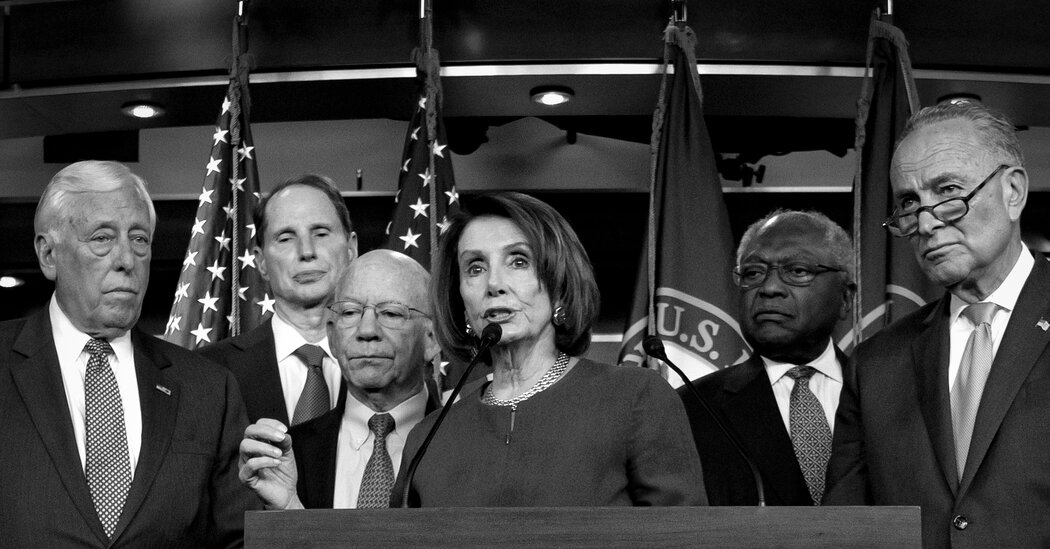
Although the share of progressives within the Democratic Party is much larger than the share of progressives writ large (12 percent of the party versus 6 percent nationally, according to the most recent political typology survey from the Pew Research Center), a large majority of Democrats are moderate to moderately liberal on most issues. That’s why — and how — Joe Biden won the nomination for president in the first place, easily beating his more left-wing opponents in the South Carolina primary and rallying much of the rest of the party behind him on Super Tuesday and beyond.
In office, Biden has led from the center of the Democratic Party. His main legislative achievement so far, Covid relief notwithstanding, is a bipartisan infrastructure bill. The next phase of his agenda, the Build Back Better plan, now rests in the hands of the most conservative Democrats in Congress. He does not celebrate violent protests; he denounces them. He supports law enforcement and the criminal justice system — see his comments on the Kyle Rittenhouse verdict — and avoids most cultural battles. This is true, as well, of most elected Democrats in Washington.
There was a battle for control of the Democratic Party, and the moderates won. They hold the power and they direct the message. But despite this victory, moderate Democrats and their allies can’t seem to take responsibility for the party’s fortunes. When faced with defeats — as they were last month when Terry McAuliffe fell to Glenn Youngkin in the race to succeed Ralph Northam as governor of Virginia — they blame the left. It’s the same song, each time. If progressives would just stop alienating the public, then they could make gains and put power back in Democratic hands. Somehow, the people in the passenger’s seat of the Democratic Party are always and forever responsible for the driver’s failure to reach their shared destination.
Writing for his newsletter, the journalist Osita Nwanevu made a version of this point earlier in the year. Progressive politicians and activists may be occasionally off-message but in the main, “The simple truth is that most of the things moderate liberals tend to argue Democrats should be doing and saying are, in fact, being done and said by the Biden administration, Democratic leaders in Congress, and the vast majority of Democratic elected officials.”
If, despite their influence, moderate Democrats are not satisfied with the state of their party, then they might want to turn their critical eye on themselves. What they’ll find are a few fundamental problems that may help explain the party’s current predicament.
After all, 2020 was not the first year that Democrats fell short of their expectations. They did so in 2010, when moderates had an even stronger grip on the party, as well as in 2014 and 2016. Here, again, I’ll echo Nwanevu. Despite pitching his administration to the moderate middle — despite his vocal critiques of “identity politics,” his enthusiastic patriotism and his embrace of the most popular Democratic policies on offer — Barack Obama could not arrest the Democratic Party’s slide with blue-collar voters. For the past decade, in other words, “the Democratic Party’s electoral prospects have been in decline for reasons unattributable to progressive figures and ideas that arrived on the political scene practically yesterday.”
Perhaps the problem, then, lies less with the rhetoric (or existence) of progressive Democrats and more with any number of transformations in the material circumstances of American life and the response — or lack thereof — from the Democrats with the power to do something. What was the Democratic Party’s response to a generation of neoliberal economic restructuring? What was its response to the near-total collapse of private-sector unions? What was its response to the declining fortunes of American workers and the upward redistribution of American wealth?







